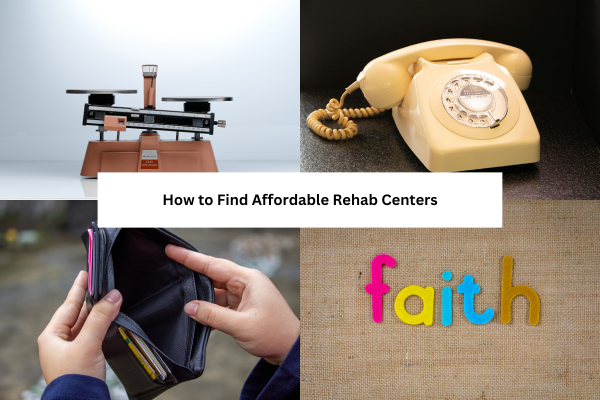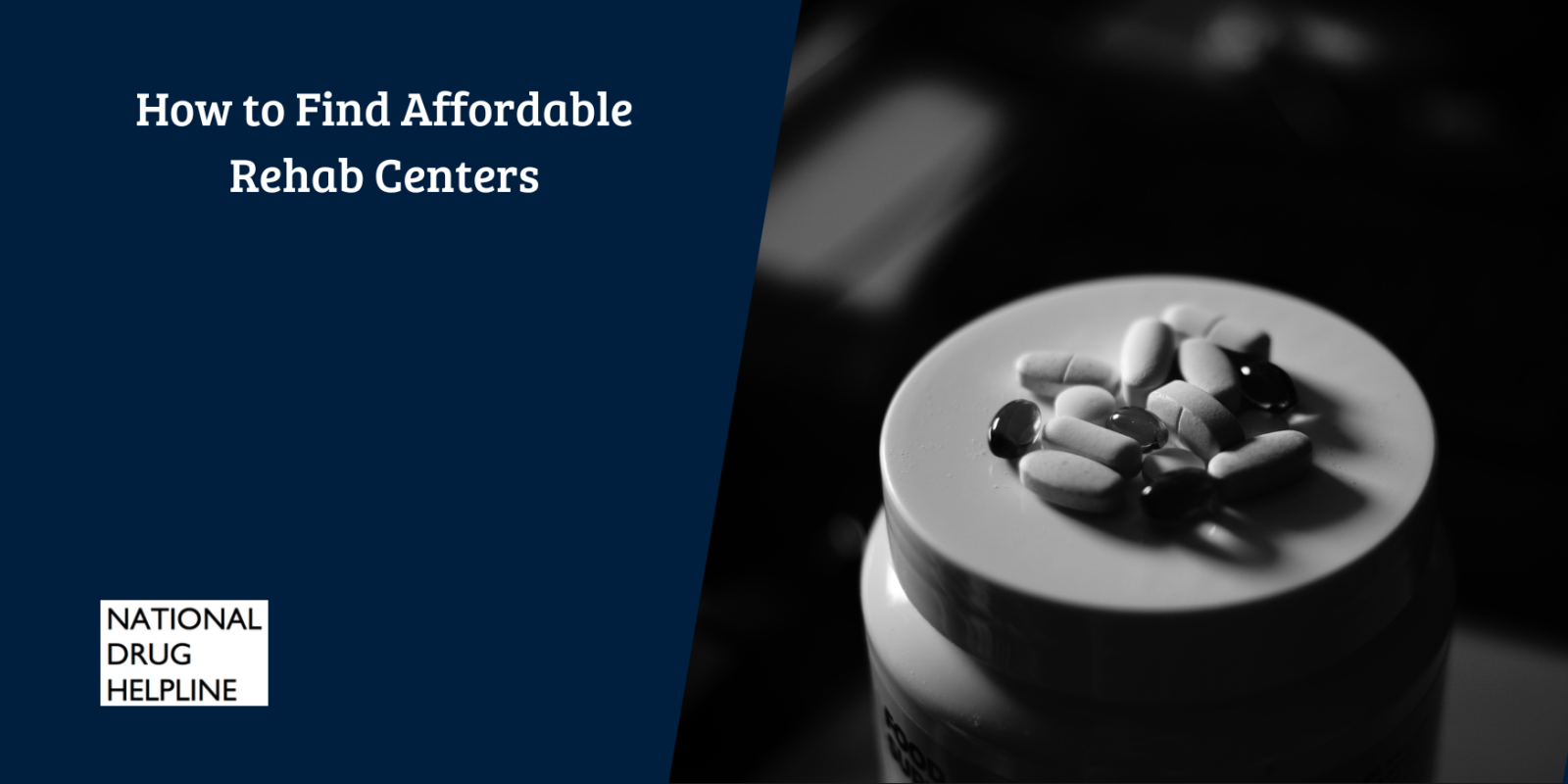Substance abuse recovery is a lifelong journey. However, the cost of treatment is often so high that it discourages many from even taking the first step. Fortunately, there are many affordable rehab centers across the U.S that provide quality care without the hefty price tag. This article will guide through your search for the best affordable rehab centers, evaluate their services, and take the first step toward recovery.
Why Rehab is Essential And Why Affordability Matters
Addiction can be devastating not just on the individual, but also on their families. Fortunately, there are many rehabilitation facilities that help through every step of recovery including initial detox, withdrawal, and aftercare. As per the National Institute on Drug Abuse, if rehab is effective, it can significantly reduce the use of drugs, criminal behavior, and relapse.[1]
Unfortunately, many people delay or avoid seeking treatment because of the high costs of treatment. But, rehab does not have to be something only the rich can afford. Regardless of whether you are uninsured, underinsured, or on a limited income, there are many affordable drug rehab centers that can still provide you with the effective care that you need to recover.
1. Understand What “Affordable” Means in Rehab
When we say affordable rehab, it has a relative meaning. It does not always mean that the rehab program is free; it may mean there are programs that can match what you are financially capable of. These might include:
- Sliding scale fees based on income
- Nonprofit or state-funded programs
- Medicaid/Medicare coverage
- Scholarships or grants from private centers
- Faith-based or community programs
What you should aim for is to balance your goals with quality, because both matter in recovery.
2. Use Government Resources to Find Low-Cost Options
You can start your search through official and trustworthy resources. The National Drug Helpline is a great place to start as it is free, available 24/7, and provides confidential service. They will guide you to available and affordable local rehab centers that are designed to help meet your needs.
3. Explore State-Funded or Public Rehab Centers
Funds are allocated by many states to support addiction treatment for their residents. They mainly fund public rehab centers that offer services at little or no cost for eligible people. Such centers usually have a waiting list. However, the wait is worthwhile as their programs are well equipped, staffed by licensed professionals, and follow evidence-based treatment protocols.
You can look up your state’s Department of Health or Addiction Services website for access to programs. Some provide detailed resources for residents.
4. Ask About Sliding Scale Fees and Payment Plans
Don’t assume a private rehab center is out of reach. Many affordable rehab centers offer sliding scale fees—adjusting costs based on your income level. Others provide payment plans, allowing you to spread the cost of treatment over time.
When speaking with admissions staff, be upfront about your financial situation. Ask:
- Do you offer sliding scale pricing?
- Can I set up a payment plan?
- Are scholarships or financial aid available?
Even high-quality centers sometimes offer financial assistance programs or limited free beds.
5. Check Your Insurance Coverage (Even If You Think You Don’t Have Any)
As per the Affordable Care Act (ACA), it is mandatory for insurance plans to cover addiction treatment as an essential health benefit.[2] This includes:
- Detox
- Inpatient or outpatient rehab
- Counseling and behavioral therapy
In many states, addiction treatment is even covered by Medicaid and Medicare. By contacting your insurance provider or a treatment center’s intake department, you can verify what is covered.

6. Look Into Faith-Based and Nonprofit Rehab Centers
Some organizations that are faith-based such as The Salvation Army or Catholic Charities also run affordable or free drug rehab centers. They are especially beneficial for low-income people. They not only incorporate spiritual guidance but also offer traditional therapy, group support, and medical detox.
Likewise, nonprofit organizations also offer quality services with a special focus on affordability and access.
7. Consider Telehealth or Outpatient Options
Most inpatient rehab facilities are expensive, as they require housing and 24/7 care. A good alternative is outpatient rehab programs, which offer flexibility at a lower cost. These include:
- Intensive outpatient programs (IOP)
- Partial hospitalization programs (PHP)
- Online/telehealth counseling
Although outpatient treatment is not suitable for severe cases that require medical detox, outpatient programs work quite well for many people and are often much more affordable.
8. Ask About Long-Term Support and Aftercare
When we look for affordable rehab, it should not just include a detox program. For long-term recovery, ongoing support is essential. Therefore, when you look for affordable rehab centers, it is important that you verify whether or not they offer crucial components to prevent relapse and ensure long-term recovery. Some programs to look for are:
- Aftercare programs
- Peer support groups (AA/NA)
- Sober living assistance
- Alumni services
9. Use Online Directories and Comparison Platforms
When you are looking up rehab options, pricing, and services, it is extremely important that you browse through trusted online directories such as:
You will find that these platforms also include reviews, payment details, accreditation, and photos. They can help you easily find the best affordable rehab centers near you.
10. What to Look for in a Quality, Affordable Rehab Center
While cost may be the first thing you look at, quality is what matters the most. Therefore, when you look for an affordable rehab center, look for the following:
- Accreditation
- Medical detox availability
- Licensed and experienced staff
- Evidence-based therapies
- Personalized treatment plans
Final Thoughts
It may take some time and research to find affordable rehab centers, but cost should never be a barrier to recovery. Whether you seek help through government programs, nonprofit organizations, or private centers offering financial aid, there are many options for everyone.
Need Help Now?Call the National Drug Helpline at (844) 289-0879. It’s free, confidential, and available 24/7.
References
| ↑1 | Kelly JF, Abry A, Ferri M, Humphreys K. Alcoholics Anonymous and 12-Step Facilitation Treatments for Alcohol Use Disorder: A Distillation of a 2020 Cochrane Review for Clinicians and Policy Makers. Alcohol Alcohol. Jul 6;55(6):641–651. |
|---|---|
| ↑2 | Abraham, Amanda J., et al. “The Affordable Care Act transformation of substance use disorder treatment.” American journal of public health 107.1 (2017): 31-32. |

